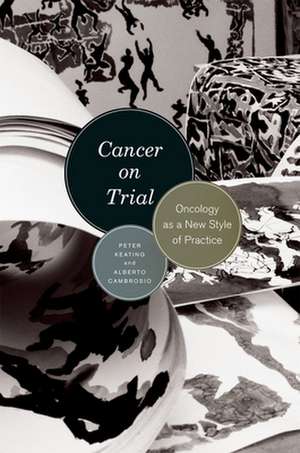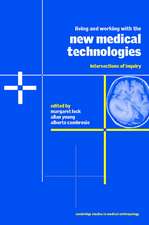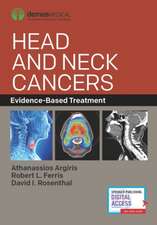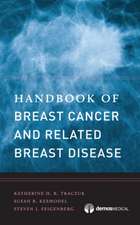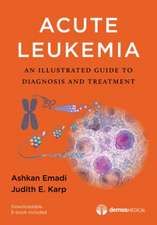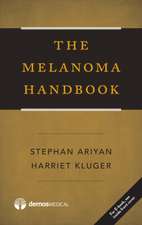Cancer on Trial: Oncology as a New Style of Practice: Emersion: Emergent Village resources for communities of faith
Autor Peter Keating, Alberto Cambrosioen Limba Engleză Paperback – 19 mai 2014
Until the early 1960s, cancer treatment consisted primarily of surgery and radiation therapy. Most practitioners then viewed the treatment of terminally ill cancer patients with heroic courses of chemotherapy as highly questionable. The randomized clinical trials that today sustain modern oncology were relatively rare and prompted stiff opposition from physicians, who were loath to assign patients randomly to competing treatments. Yet today these trials form the basis of medical oncology. How did such a spectacular change occur? How did medical oncology pivot from a nonentity and, in some regards, a reviled practice to the central position it now occupies in modern medicine?
In Cancer on Trial Peter Keating and Alberto Cambrosio explore how practitioners established a new style of practice, at the center of which lies the cancer clinical trial. Far from mere testing devices, these trials have become full-fledged experiments that have redefined the practices of clinicians, statisticians, and biologists. Keating and Cambrosio investigate these trials and how they have changed since the 1960s, all the while demonstrating their significant impact on the progression of oncology. A novel look at the institution of clinical cancer research and therapy, this book will be warmly welcomed by historians, sociologists, and anthropologists of science and medicine, as well as clinicians and researchers in the cancer field.
In Cancer on Trial Peter Keating and Alberto Cambrosio explore how practitioners established a new style of practice, at the center of which lies the cancer clinical trial. Far from mere testing devices, these trials have become full-fledged experiments that have redefined the practices of clinicians, statisticians, and biologists. Keating and Cambrosio investigate these trials and how they have changed since the 1960s, all the while demonstrating their significant impact on the progression of oncology. A novel look at the institution of clinical cancer research and therapy, this book will be warmly welcomed by historians, sociologists, and anthropologists of science and medicine, as well as clinicians and researchers in the cancer field.
Din seria Emersion: Emergent Village resources for communities of faith
-
 Preț: 144.99 lei
Preț: 144.99 lei -
 Preț: 133.99 lei
Preț: 133.99 lei - 9%
 Preț: 352.50 lei
Preț: 352.50 lei -
 Preț: 146.50 lei
Preț: 146.50 lei -
 Preț: 208.32 lei
Preț: 208.32 lei -
 Preț: 156.84 lei
Preț: 156.84 lei -
 Preț: 115.53 lei
Preț: 115.53 lei -
 Preț: 548.71 lei
Preț: 548.71 lei - 8%
 Preț: 346.31 lei
Preț: 346.31 lei - 8%
 Preț: 360.28 lei
Preț: 360.28 lei -
 Preț: 216.90 lei
Preț: 216.90 lei -
 Preț: 101.43 lei
Preț: 101.43 lei -
 Preț: 215.52 lei
Preț: 215.52 lei -
 Preț: 185.37 lei
Preț: 185.37 lei - 8%
 Preț: 563.24 lei
Preț: 563.24 lei -
 Preț: 179.04 lei
Preț: 179.04 lei -
 Preț: 106.35 lei
Preț: 106.35 lei -
 Preț: 138.81 lei
Preț: 138.81 lei -
 Preț: 273.93 lei
Preț: 273.93 lei -
 Preț: 127.89 lei
Preț: 127.89 lei - 9%
 Preț: 353.24 lei
Preț: 353.24 lei -
 Preț: 176.49 lei
Preț: 176.49 lei -
 Preț: 94.22 lei
Preț: 94.22 lei -
 Preț: 144.80 lei
Preț: 144.80 lei -
 Preț: 126.25 lei
Preț: 126.25 lei -
 Preț: 67.35 lei
Preț: 67.35 lei -
 Preț: 163.52 lei
Preț: 163.52 lei -
 Preț: 138.26 lei
Preț: 138.26 lei -
 Preț: 182.98 lei
Preț: 182.98 lei - 18%
 Preț: 502.35 lei
Preț: 502.35 lei - 18%
 Preț: 2261.34 lei
Preț: 2261.34 lei -
 Preț: 279.55 lei
Preț: 279.55 lei -
 Preț: 116.07 lei
Preț: 116.07 lei -
 Preț: 208.55 lei
Preț: 208.55 lei -
 Preț: 167.85 lei
Preț: 167.85 lei -
 Preț: 160.63 lei
Preț: 160.63 lei -
 Preț: 183.89 lei
Preț: 183.89 lei - 9%
 Preț: 352.77 lei
Preț: 352.77 lei -
 Preț: 307.55 lei
Preț: 307.55 lei - 12%
 Preț: 290.56 lei
Preț: 290.56 lei - 8%
 Preț: 311.68 lei
Preț: 311.68 lei -
 Preț: 120.81 lei
Preț: 120.81 lei -
 Preț: 229.92 lei
Preț: 229.92 lei - 6%
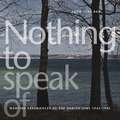 Preț: 324.95 lei
Preț: 324.95 lei -
 Preț: 145.41 lei
Preț: 145.41 lei -
 Preț: 152.07 lei
Preț: 152.07 lei -
 Preț: 186.09 lei
Preț: 186.09 lei - 18%
 Preț: 348.59 lei
Preț: 348.59 lei -
 Preț: 302.76 lei
Preț: 302.76 lei - 8%
 Preț: 565.01 lei
Preț: 565.01 lei
Preț: 291.97 lei
Preț vechi: 307.34 lei
-5% Nou
Puncte Express: 438
Preț estimativ în valută:
55.88€ • 58.12$ • 46.13£
55.88€ • 58.12$ • 46.13£
Carte tipărită la comandă
Livrare economică 14-28 aprilie
Preluare comenzi: 021 569.72.76
Specificații
ISBN-13: 9780226143040
ISBN-10: 022614304X
Pagini: 480
Ilustrații: 25 halftones, 25 line drawings
Dimensiuni: 152 x 229 x 30 mm
Greutate: 0.64 kg
Editura: University of Chicago Press
Colecția University of Chicago Press
Seria Emersion: Emergent Village resources for communities of faith
ISBN-10: 022614304X
Pagini: 480
Ilustrații: 25 halftones, 25 line drawings
Dimensiuni: 152 x 229 x 30 mm
Greutate: 0.64 kg
Editura: University of Chicago Press
Colecția University of Chicago Press
Seria Emersion: Emergent Village resources for communities of faith
Notă biografică
Peter Keating is professor of history at the Université du Québec à Montréal. Alberto Cambrosio is professor in the Department of Social Studies of Medicine at McGill University. Together, they are the authors of Exquisite Specificity: The Monoclonal Antibody Revolution and Biomedical Platforms: Realigning the Normal and the Pathological in Late Twentieth-Century Medicine.
Cuprins
Acknowledgments
Introduction
CHAPTER 1. From “Nonentity” to Global Network: The Rise of a New Style of Biomedical Practice
An Early Career in Clinical Oncology
About This Book
A Capsule History of Cancer Clinical Trials
Cancer Clinical Trials as a New Style of Practice
The Protocol
Conclusion
PRELUDE. Before There Were Trials
Cancer Hospitals and Cancer Institutes
Diagnosing Cancer
Treating Cancer
Prognosticating Cancer
Testing Therapies
Conclusion
PART 1. The Emergence of Clinical Cancer Research (1955–66)
CHAPTER 2. A Landmark Clinical Trial
Curing Leukemia: The VAMP Trial
A Collective Undertaking
The Elements of Innovation
What about the Patients?
CHAPTER 3. The Collective Turn: Cooperative Groups as Epistemic Organizations
Assembling the US Cooperative System
Screening for Drugs: From Mice to Humans
Tinkering with the Cooperative Group Structure
Meanwhile in Europe . . .
Conclusion
FIRST INTERLUDE. Clinical Trial Statistics
What Is a Random Sample?
What Is Statistical Significance?
CHAPTER 4. Statisticians, Statistics, and Early Cooperative Clinical Trials
Statisticians at the NIH
Statisticians in Paris
Fabricating the Tools of the Trade
Controversial Methods
The Emergence of the Phase System
Conclusion
CHAPTER 5. Criticism and the Redefinition of Clinical Cancer Trials as an Autonomous Form of Research
Clinical Cancer Research under Fire
The Reorganization of Screening and Clinical Trials in the United States
Surgery and Radiotherapy in the Cooperative Groups
PART 2. An Avalanche of Numbers from the New Style of Practice (1965–89)
CHAPTER 6. A Web of Trials
Breast Cancer and Its Trials
The Lessons of the Breast Cancer Trials
The Emergence of Combination Chemotherapy
The Multiple Meanings of Breast Cancer Trials
Conclusion
CHAPTER 7. Statisticians, Data Centers, and the Organization of Large-Scale Clinical Trials
Centers of Calculation: US Statisticians and the Data Center
The Mechanics of Data Production
Meanwhile in Europe, Take Two
Back in the USA: Group Statisticians and NCI Statisticians
Insiders’ Dissent: The Randomization Debate
CHAPTER 8. A Relational Space of Substances and Regimens
The Clinical Evaluation of Substances
Screening Substances: The Animal Screen
Procuring Compounds
CHAPTER 9. Oncopolitics? Reshaping Collaborative Research
Centralization or Coordination? The European Debate
Clinical Trials as Clinical Research: The US Debate
Oncology in the Community
PART 3. Targeted Therapy, Targeted Trials (1990–2006)
SECOND INTERLUDE. Molecular Biology and Oncogenes
Introduction
The Rise of Molecular Biology
Cancer and Molecular Biology: 1960–80
The Clinical Isolation of Human Oncogenes
Oncogenes and Oncoproteins since 1982
CHAPTER 10. Magic Bullets? The Gleevec Trials
Molecular Biology and Targeted Substances
The Trials of a Targeted Therapy
Where Did Gleevec Come From?
Monitoring Data, Managing Risks
A Medical Oncologist and His Patients
Patients and Activists
Conclusion
CHAPTER 11. Targeted Therapy and Clinical Cancer Research
Introduction: Molecular Biology and Translational Research
Molecular Biology and the US Cooperative Groups
The Reorganization of the Drug Discovery Process and the Transformation of the NCI Screen
Clinical Trials in a Targeted Age
More Oncopolitics
Conclusion
Conclusion
CHAPTER 12. Looking Back and Looking Forward
The Observational Alternative to Clinical Cancer Trials
Comparative Effectiveness and Clinical Trials
Coda
References
Index
Introduction
CHAPTER 1. From “Nonentity” to Global Network: The Rise of a New Style of Biomedical Practice
An Early Career in Clinical Oncology
About This Book
A Capsule History of Cancer Clinical Trials
Cancer Clinical Trials as a New Style of Practice
The Protocol
Conclusion
PRELUDE. Before There Were Trials
Cancer Hospitals and Cancer Institutes
Diagnosing Cancer
Treating Cancer
Prognosticating Cancer
Testing Therapies
Conclusion
PART 1. The Emergence of Clinical Cancer Research (1955–66)
CHAPTER 2. A Landmark Clinical Trial
Curing Leukemia: The VAMP Trial
A Collective Undertaking
The Elements of Innovation
What about the Patients?
CHAPTER 3. The Collective Turn: Cooperative Groups as Epistemic Organizations
Assembling the US Cooperative System
Screening for Drugs: From Mice to Humans
Tinkering with the Cooperative Group Structure
Meanwhile in Europe . . .
Conclusion
FIRST INTERLUDE. Clinical Trial Statistics
What Is a Random Sample?
What Is Statistical Significance?
CHAPTER 4. Statisticians, Statistics, and Early Cooperative Clinical Trials
Statisticians at the NIH
Statisticians in Paris
Fabricating the Tools of the Trade
Controversial Methods
The Emergence of the Phase System
Conclusion
CHAPTER 5. Criticism and the Redefinition of Clinical Cancer Trials as an Autonomous Form of Research
Clinical Cancer Research under Fire
The Reorganization of Screening and Clinical Trials in the United States
Surgery and Radiotherapy in the Cooperative Groups
PART 2. An Avalanche of Numbers from the New Style of Practice (1965–89)
CHAPTER 6. A Web of Trials
Breast Cancer and Its Trials
The Lessons of the Breast Cancer Trials
The Emergence of Combination Chemotherapy
The Multiple Meanings of Breast Cancer Trials
Conclusion
CHAPTER 7. Statisticians, Data Centers, and the Organization of Large-Scale Clinical Trials
Centers of Calculation: US Statisticians and the Data Center
The Mechanics of Data Production
Meanwhile in Europe, Take Two
Back in the USA: Group Statisticians and NCI Statisticians
Insiders’ Dissent: The Randomization Debate
CHAPTER 8. A Relational Space of Substances and Regimens
The Clinical Evaluation of Substances
Screening Substances: The Animal Screen
Procuring Compounds
CHAPTER 9. Oncopolitics? Reshaping Collaborative Research
Centralization or Coordination? The European Debate
Clinical Trials as Clinical Research: The US Debate
Oncology in the Community
PART 3. Targeted Therapy, Targeted Trials (1990–2006)
SECOND INTERLUDE. Molecular Biology and Oncogenes
Introduction
The Rise of Molecular Biology
Cancer and Molecular Biology: 1960–80
The Clinical Isolation of Human Oncogenes
Oncogenes and Oncoproteins since 1982
CHAPTER 10. Magic Bullets? The Gleevec Trials
Molecular Biology and Targeted Substances
The Trials of a Targeted Therapy
Where Did Gleevec Come From?
Monitoring Data, Managing Risks
A Medical Oncologist and His Patients
Patients and Activists
Conclusion
CHAPTER 11. Targeted Therapy and Clinical Cancer Research
Introduction: Molecular Biology and Translational Research
Molecular Biology and the US Cooperative Groups
The Reorganization of the Drug Discovery Process and the Transformation of the NCI Screen
Clinical Trials in a Targeted Age
More Oncopolitics
Conclusion
Conclusion
CHAPTER 12. Looking Back and Looking Forward
The Observational Alternative to Clinical Cancer Trials
Comparative Effectiveness and Clinical Trials
Coda
References
Index
Recenzii
“[M]eticulously researched and precisely written. . . . Keating and Cambrosio’s incredibly detailed and technical account of the development of medical oncology in the United States and Europe is written for historians of science and medicine as well as for the oncology community. Scholars in these fields will recognize this book as an important addition to the literature on clinical trials, biomedicine, and technology studies.”
“Keating and Cambrosio have made a major contribution to this area and scholars of any stripe working on cancer or biomedicine, and even the further-flung fields of statistics and molecular biology, will benefit from reckoning with its insights.”
“Cancer on Trial is a substantial contribution to our historical and sociological understanding of clinical cancer research and is highly recommended for anyone interested in the actual emergence of bioscience in clinical settings. This excellent book treats the meteoric rise of cancer research and treatment across the globe since the mid-twentieth century by focusing explicitly on transnational cooperative clinical trials as the hub through which oncology emerged as a new form of medical and scientific practice.”
“Cancer on Trial is a landmark study in historical and social studies of clinical research. Keating and Cambrosio brilliantly analyze the apparatus through which oncology trials are conducted. Through detailed examinations of specific trials in three periods, they show how tightly coupled epistemic, institutional, and technical changes constituted a new form of clinical research practice. This carefully argued and meticulously documented book will be immensely interesting not only to scholars in science and technology studies, but also to cancer researchers interested in the origins of their experimental practices.”
“This innovative book is more than a history of cancer research and clinical trials in the twentieth century, it’s a history of contemporary biomedicine all together. Whereas most previous scholarly accounts have placed the laboratory at center stage, Cancer on Trial finally gives the clinic the attention it deserves. Clinical trials might seem less glamorous than ‘eureka moments’ in the laboratory, but they are certainly more representative of the workings of today’s biomedical research. By focusing on cancer clinical trials as a ‘style of practice,’ rather than as the routine testing of new treatments, Keating and Cambrosio show compellingly how biomedicine has evolved into a specific kind of research enterprise redefining at the same time treatments, diseases, patients, and researchers. Cancer on Trial offers to its readers powerful intellectual tools to understand current debates about the successes and failures of cancer therapies, the role of public and private research, and the promises and perils of personalized medicine. Anyone interested in current biomedical research will benefit immensely from reading this book.”
“This remarkable book charts the emergence of a clinical field—medical oncology—for which experimental protocols have become routinized as a form of normal practice. Cancer on Trial will make a lasting contribution to the sociology of scientific knowledge, the history of clinical practice, and the understanding of the networked basis of biomedical research.”
“Today’s cancer patient inhabits a bewildering chemo-world of trials and protocols, risks and probabilities, toxic chemicals and noxious side effects. What brought this new world into being? With a powerful grasp of historical and technical detail, Keating and Cambrosio tell the important story of the rise of the organizational forms of modern ‘oncopolitics,’ and they deftly capture the unique character of a new style of scientific practice.”
